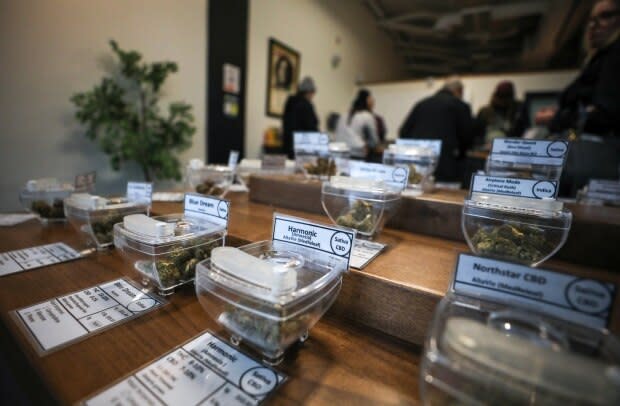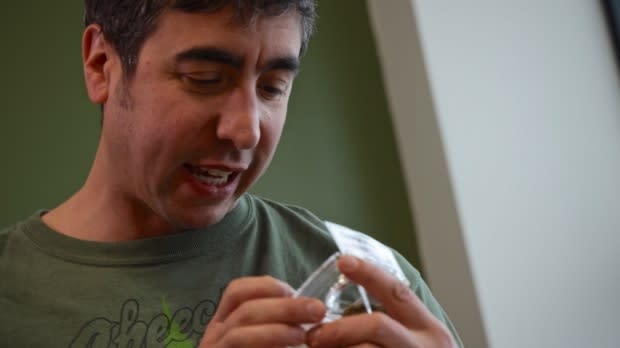Cannabis stores in B.C. mark first year of legal sales with mixed reviews
A year after Canada legalized cannabis, the system of public, private and online sales in B.C. remains a work in progress.
At its core, the system is simple: The B.C. Liquor Distribution Branch (BCLDB) operates its own B.C. Cannabis Store shops and online sales, as well as wholesaling cannabis from licensed producers across the country to private retailers.
But it becomes a patchwork where municipalities have added their own rules and dispensaries go through those vetting and licensing system.
There are now 85 provincially licensed private dispensaries, all of which have cleared local government hurdles (indicated on map below as green leaves.) There are seven official B.C. Cannabis Store locations — none of which is in Metro Vancouver (indicated by yellow circles) and at least nine more government store are planned (orange circles).
Some areas lack stores completely, mainly because municipalities have a veto power on the issue.
Some, like Vancouver, have moved aggressively to create zoning and licensing rules for companies wanting to set up shop. But others have put in complete bans and some are taking a "wait and see" approach.
"By and large are our members appear to be satisfied with how the system is operating," said Sooke Mayor Maja Tait, new president of the Union of B.C. Municipalities.
Municipal authority
She admits that the rollout has been slower than some might have expected, but said it's due to municipalities being given plenty of authority and many lacking capacity to move quickly.
For some, the dispensary roll-out across the province was painfully slow, allowing the black market to continue to flourish.
Attorney General David Eby's ministry, which oversees the BCLDB, said on Thursday that a little more than $60 million worth of cannabis has been sold in licensed stores since legalization, adding up to nearly five tonnes. The spokesperson was unwilling to say how much of that was through private stores and the government-run stores.
According to a BCLDB spokesperson, as of Oct. 1 there had been 145,454 transactions through the online B.C. Cannabis Store, totalling the equivalent of 1,514 kilograms of cannabis.
Cannabis sales in B.C. in July totalled $5.5 million, according to Statistics Canada, up from June, but less than a quarter of the sales in Quebec, Ontario or Alberta.
Dispensary growing pains
For dispensary owners in B.C., the experience has been mixed.
Mike Babins operated a grey market shop in Vancouver in the years leading up to legalization, and was among the first to get a license from the province. Nevertheless, it has required tens of thousands of dollars in legal fees and lots of patience — he wasn't able to sell cannabis for about two and a half months after it became legal.

"On the whole, it's been very, very positive. You know, there are still bumps, there are still steps. There are things that have to be fixed, but we're getting there," said Babins. "The legit market's a lot better — a lot better."
He said he doesn't have to worry about looking over his shoulder and while profit margins were much better before legalization, he gets more business now.
Initially, Babins had to learn to deal with the BCLDB's 37 licensed producers — and there were bad or old batches of weed — but now he's confident in the product he's selling.
The story is completely different for Don Briere, owner of Weeds Glass and Gifts. At its peak, Weeds had 36 unlicensed stores across the country, with 20 in B.C. Briere said in a year, the company had roughly $45 million in revenue, with about $10 million paid in taxes.

He was selling products outlawed by the federal government, like shatter and edibles. But in June, Briere began shutting his stores down.
Now he's trying to get licenses to reopen the maximum eight dispensaries in B.C. He's not happy about the quality of the cannabis available through the BCLDB, the cost or the packaging, but that's what he's going to sell if he gets his licenses.
"That's what we have to do to be in this market," said Briere.
With files from Justin McElroy
Follow Rafferty Baker on Twitter: @raffertybaker
Do you have more to add to this story? Email rafferty.baker@cbc.ca


